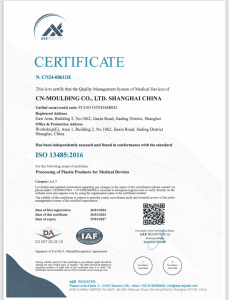
ISO 13485 is an international standard that specifies requirements for a quality management system specifically tailored for the medical device industry. It is designed to ensure the consistent design, development, production, installation, and delivery of medical devices that are safe for their intended purpose.
The standard is based on the ISO 9001 process model approach and is specifically adapted for the unique regulatory and safety requirements of the medical device industry. It places a strong emphasis on risk management and process control to ensure the highest level of product quality and patient safety.
ISO 13485 is applicable to all organizations involved in the life cycle of a medical device, from design and development to production, installation, and servicing. This includes manufacturers, suppliers, subcontractors, and distributors. By implementing ISO 13485, organizations can demonstrate their commitment to quality and compliance with regulatory requirements in the medical device industry.
One of the key benefits of ISO 13485 certification is its global recognition. It provides a common framework for meeting regulatory requirements and facilitates international trade by ensuring that medical devices meet the same high standards of quality and safety regardless of where they are produced or used.
In addition to meeting regulatory requirements, ISO 13485 certification can also provide a competitive advantage. It demonstrates to customers, regulators, and other stakeholders that an organization is committed to quality and has implemented effective processes to ensure the safety and efficacy of its medical devices.
The standard covers a wide range of requirements, including management responsibility, resource management, product realization, measurement, analysis and improvement. It also includes specific requirements related to design and development, production processes, risk management, and validation of processes.
To achieve ISO 13485 certification, organizations must undergo a thorough audit process conducted by an accredited certification body. This involves demonstrating compliance with the standard’s requirements through documentation review, interviews, and on-site inspections of facilities and processes.
Once certified, organizations must maintain their compliance through regular surveillance audits to ensure ongoing conformance to the standard. This helps to ensure that the quality management system remains effective and continues to meet the needs of the organization and its customers.
In summary, ISO 13485 is a critical standard for the medical device industry, providing a framework for organizations to establish and maintain a quality management system that ensures the safety and effectiveness of medical devices. By achieving certification, organizations can demonstrate their commitment to quality and compliance, gain a competitive edge, and access global markets with greater ease.
